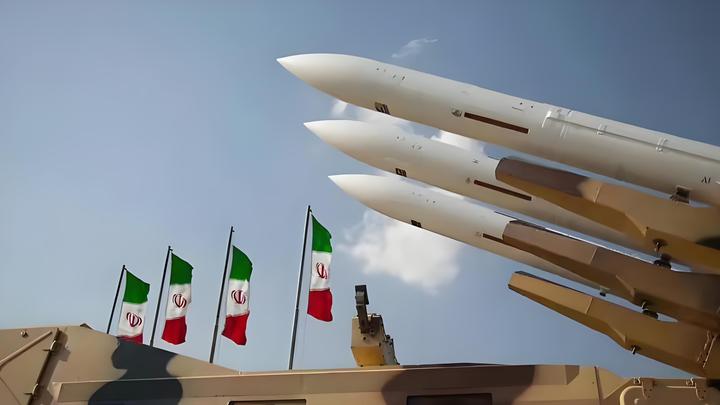Author: Prof. Engr. Zamir Ahmed Awan, Founding Chair GSRRA, Sinologist, Diplomat, Editor, Analyst, Advisor, Consultant, Researcher at Global South Economic and Trade Cooperation Research Center, and Non-Resident Fellow of CCG. (E-mail: awanzamir@yahoo.com).
Iran stands as one of the oldest civilizations in human history, with a legacy of strength, knowledge, and cultural depth that spans millennia. From the Achaemenid Empire to the Sassanian dynasty, Iran has been a formidable power, shaping global history and influencing civilizations across continents. However, in the past several centuries, Iran has faced geopolitical challenges, foreign interventions, and internal struggles that have hindered its progress. Despite these setbacks, Iran remains a resilient nation with the potential to reclaim its rightful place as a regional and global power.
The Roots of Western Rivalry with Iran
The conflict between Iran and Western powers, particularly the United States and the United Kingdom, can be traced back to the early 1950s. In 1953, a US- and UK-backed coup overthrew Iran's democratically elected Prime Minister, Mohammad Mossadegh, following his decision to nationalize the Iranian oil industry. This blatant interference set the stage for decades of mistrust between Iran and the West. The imposed rule of the Shah, who was seen as a puppet of Western interests, led to the 1979 Islamic Revolution, which severed ties with Washington and London and established an independent path for Iran.
Since then, tensions have remained high, with the US and its allies continuously working to isolate and weaken Iran through economic sanctions, military threats, and diplomatic coercion. This hostility culminated in the unilateral withdrawal of the United States from the Joint Comprehensive Plan of Action (JCPOA), commonly known as the Iran nuclear deal, under the Trump administration.
President Trump's Reckless Withdrawal from the Iran Nuclear Deal
The JCPOA, signed in 2015 between Iran and major world powers—including the US, UK, France, Germany, Russia, and China—was a landmark agreement aimed at ensuring the peaceful nature of Iran's nuclear program. The International Atomic Energy Agency (IAEA) repeatedly confirmed Iran’s full compliance with the agreement. However, despite this, President Donald Trump, in 2018, unilaterally withdrew the United States from the deal, citing baseless accusations and political motivations rather than factual violations. This reckless move not only undermined global diplomatic efforts but also exacerbated regional tensions, leaving Iran in a precarious position.
Israel's Continuous Threats and Attacks on Iran
Israel, Iran’s most aggressive adversary in the region, has consistently opposed the nuclear agreement, often engaging in provocative actions against Iran. Israel possesses a vast and undeclared nuclear arsenal, yet it persistently claims that Iran’s nuclear advancements pose an existential threat. In recent years, Israel has carried out targeted assassinations of Iranian nuclear scientists, conducted cyberattacks against Iranian infrastructure, and launched direct military strikes on Iranian facilities. Such aggression, coupled with open threats from Israeli leadership, poses a significant risk to Iran’s national security and regional stability.
The Hypocrisy of the United States and the Necessity of Nuclear Deterrence
The United States, the only nation in history to have used nuclear weapons in warfare, frequently demands that Iran abandon its nuclear ambitions while simultaneously supplying its allies, including Israel, with advanced military capabilities. This double standard is not only unjust but also indicative of a broader geopolitical strategy aimed at preventing Iran from achieving strategic independence.
Given the persistent threats from both Israel and the United States, Iran finds itself left with no viable option but to pursue nuclear deterrence as a means of ensuring its sovereignty and security. The principle of deterrence is well understood in global politics; nations that possess nuclear weapons are far less likely to be invaded or attacked. Thus, Iran's pursuit of self-defense capabilities is a rational response to the existential threats it faces.
Strengthening Alliances with Russia and China
In light of increasing Western hostility, Iran has deepened its strategic ties with Russia and China. Both nations have stood by Iran in international forums and have actively resisted Western attempts to isolate Tehran. China, through its Belt and Road Initiative, has provided economic opportunities for Iran, while Russia has collaborated with Iran in defense and energy sectors. The tripartite relationship between Iran, Russia, and China signals a shifting geopolitical landscape, where emerging powers challenge Western dominance.
Recent Nuclear Talks in Beijing
Against this backdrop, high-level discussions between Iran, Russia, and China were recently held in Beijing to address nuclear issues and explore pathways for regional stability. The talks emphasized the importance of multilateralism, the necessity of lifting unjust sanctions on Iran, and the call for denuclearization of the Middle East—starting with Israel’s undisclosed nuclear arsenal. Iran’s diplomatic engagement with China and Russia underscores its commitment to peaceful cooperation while securing its national interests.
The Way Forward: A Just and Balanced Approach
For long-term regional peace, it is imperative that the international community adopts a balanced approach to nuclear proliferation. The first step must be the denuclearization of Israel, which remains the only nuclear-armed state in the Middle East. Furthermore, the United States must abandon its policy of intimidation and recognize Iran’s right to self-defense. A comprehensive security guarantee, backed by international powers, should be offered to Iran to ensure that it is not subjected to unprovoked aggression.
Summary
Iran’s history is one of resilience, intellect, and strength. The continued Western hostility, coupled with Israel’s aggressive posturing, leaves Iran with few options but to fortify its defenses. The international community must acknowledge the root causes of the tensions and work toward a fair and just resolution. A nuclear-free Middle East, where all nations are treated with equal respect and sovereignty is upheld, is the only viable path toward lasting peace and stability. Until then, Iran has every right to protect itself against foreign aggression, just as any sovereign nation would.
(ASIA PACIFIC DAILY)
